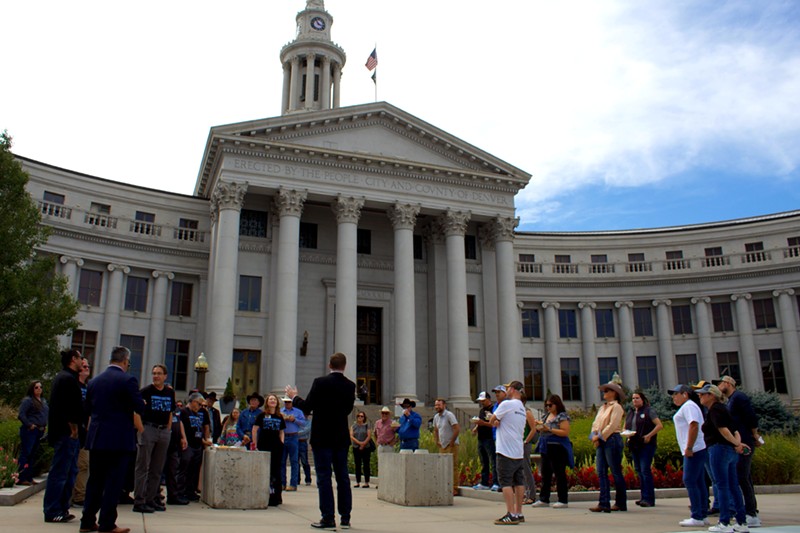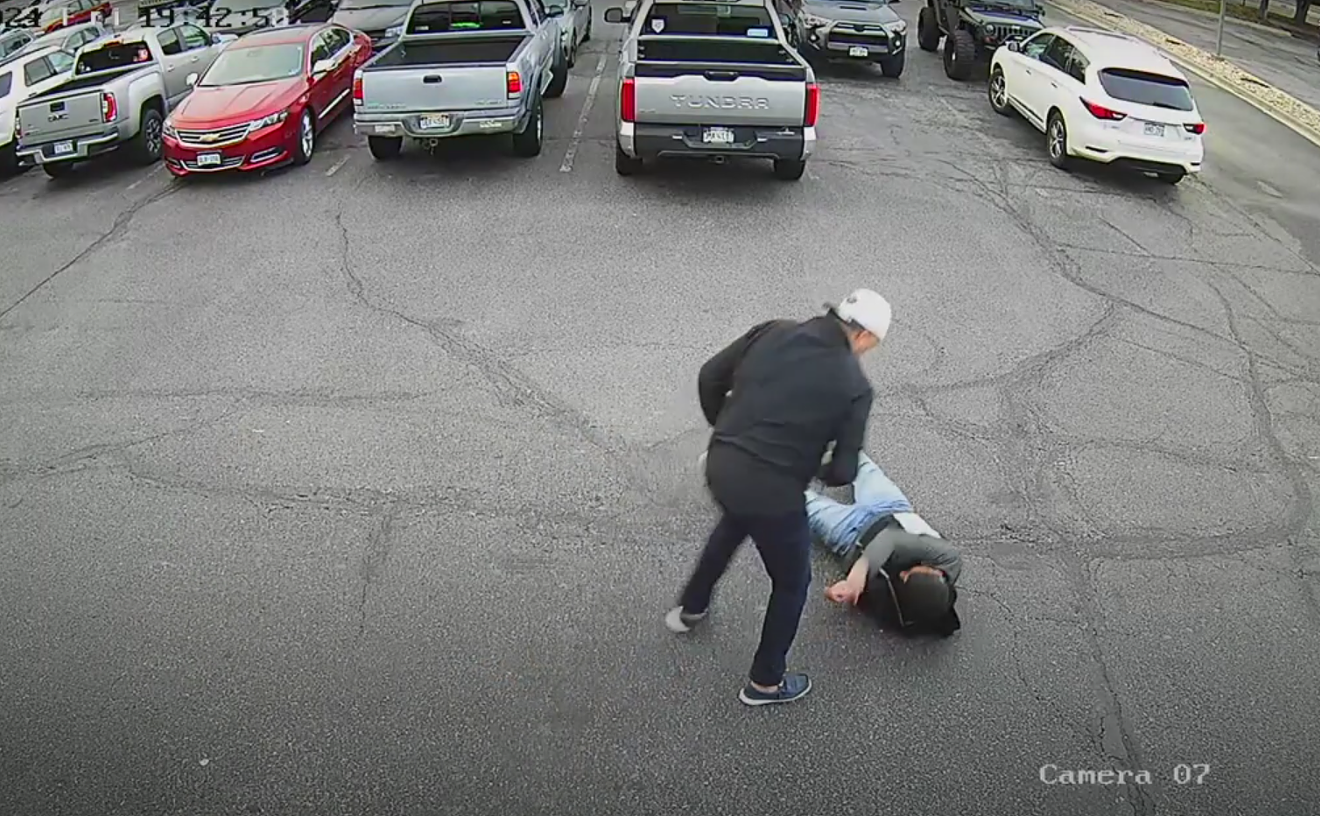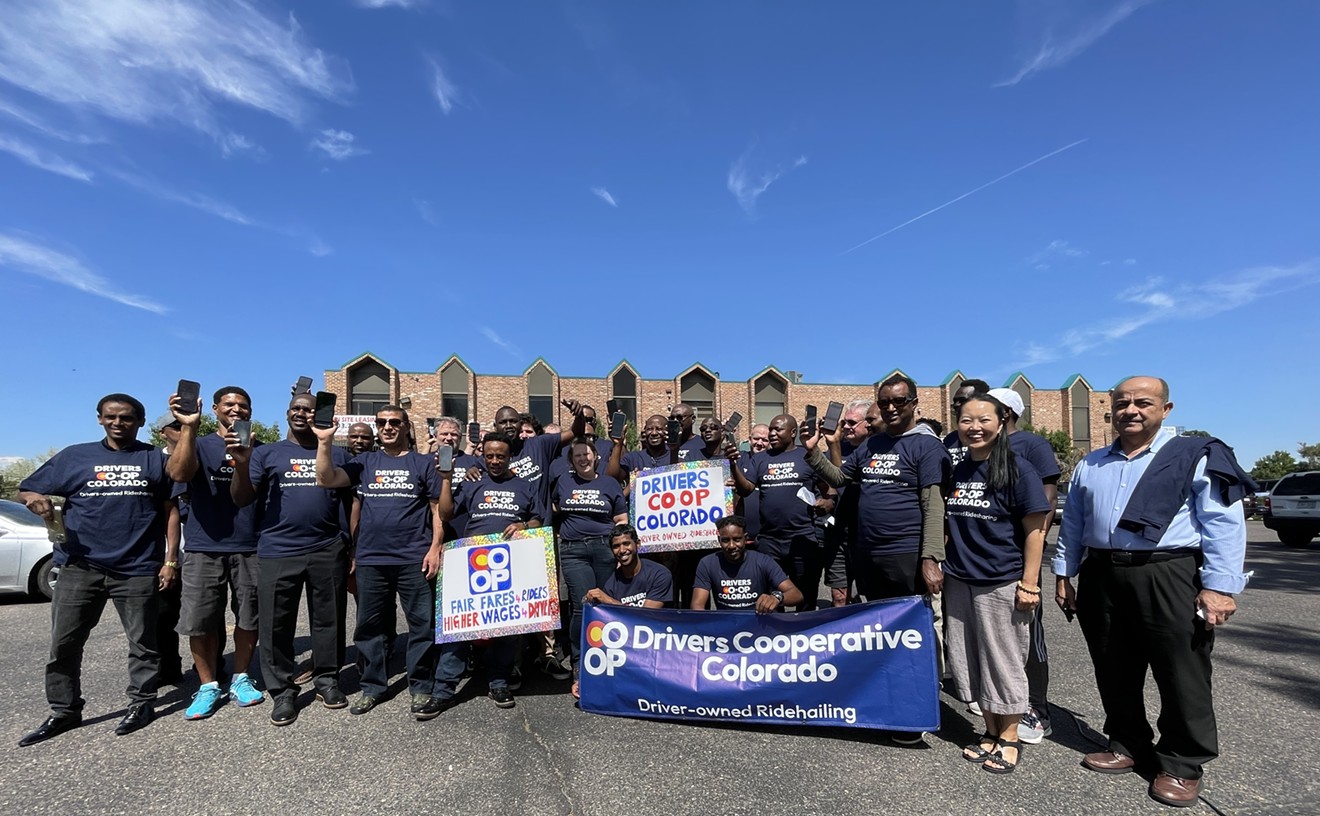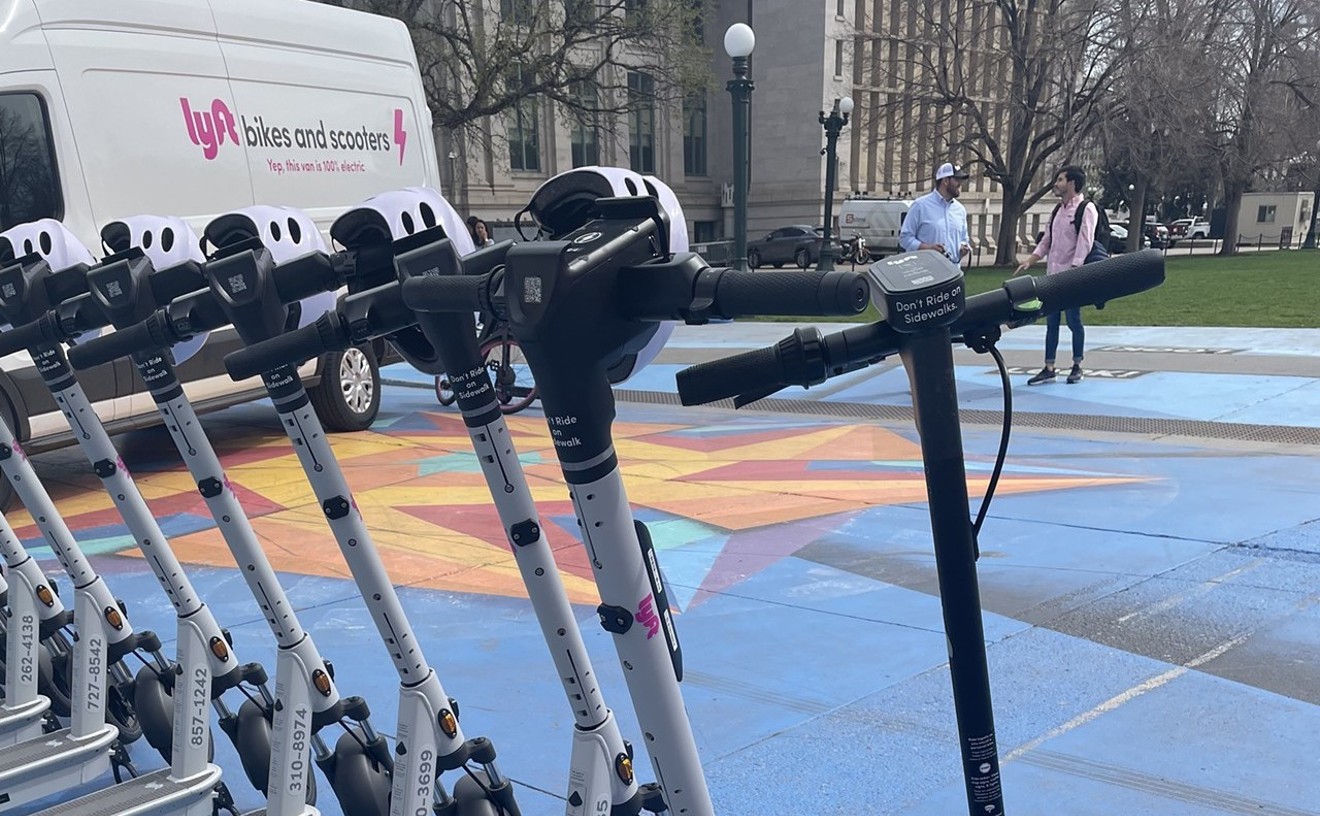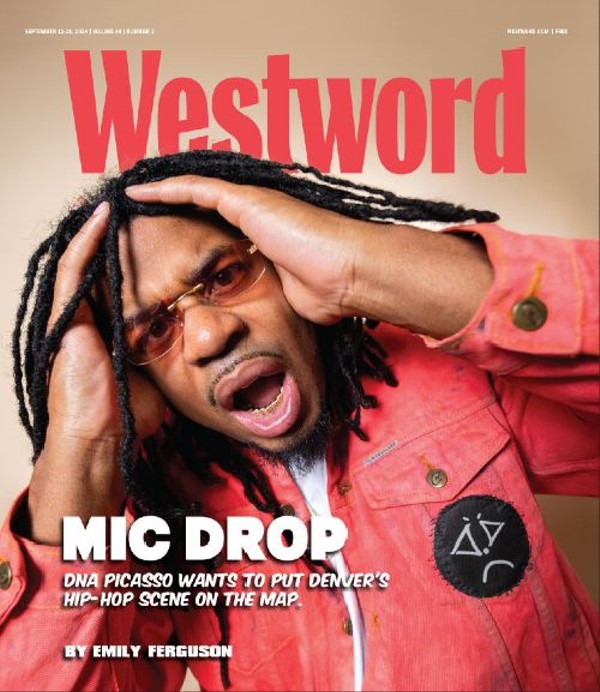Initiated Ordinance 309 petitioned onto this year's ballot, asking Denver voters to prohibit the operation and construction of slaughterhouses within city limits beginning in 2026. There is currently only one slaughterhouse in the city that would be impacted by the ban: the largest lamb-packing plant in the country.
Colorado is the third-largest producer of sheep and lambs in the nation, according to the American Sheep Industry Association, with Superior Farms in Globeville harvesting around 300,000 lambs per year and sending the meat all across the country. The Denver slaughterhouse accounts for 15 to 20 percent of lamb slaughter capacity in the United States.
"Essentially, that's the jugular vein of the sheep industry here in the state," says Kenny Rogers of the Colorado Livestock Association.
There is only one other major lamb-processing facility in Colorado, though it has less than one-third of the output and is at capacity, Rogers says. If the Denver slaughterhouse closes, he fears Colorado lamb producers will have to turn to facilities in Texas or the West Coast — or close down.
"I honestly don't see many willing and able to weather the storm if they have to ship their animals 24-hour travel time on a truck in either direction," Rogers says. "The transportation cost, the stress on the livestock — I don't see how they can overcome that."
Proponents of the ballot measure say shifting the livestock industry and its practices is exactly the point. The animal-rights group behind the ordinance, Pro-Animal Future, calls slaughterhouses "inhumane to workers, animals and the surrounding communities they pollute."
They reference studies on European-based slaughterhouses that found that cows and pigs were often not adequately electrically stunned before they were killed. They also point to accusations of animal mistreatment levied against Superior Farms' other facility, in Dixon, California, where a 2016 video from animal-rights activists showed sheep struggling and seemingly continuing to breathe after having their throats slit.
"This is not an attack on agriculture writ large; this is an attack on the most intensified, industrial form of animal agriculture," says Aidan Kankyoku of Pro-Animal Future, one of the main organizers behind the ballot measure. "That's fundamentally what this measure is about: Denver voters saying yes, there is a problem with factory farming, there is a problem with industrial animal slaughterhouses."
While the animal-cruelty allegations aren't specific to the Denver slaughterhouse, Pro-Animal Future has accused the facility of violating environmental regulations and dumping lamb feces into the nearby South Platte River, claiming to have gotten the information from former employees.
Rally in Opposition
Many current employees of the Denver slaughterhouse gathered on Wednesday, September 11, at a rally opposing the ballot measure. Around sixty people spoke against the ban on the steps of the City and County Building, including Superior Farms employees, agriculture advocates and elected officials such as State Senator Byron Pelton, Denver Councilman Kevin Flynn and Councilman Darrell Watson, who represents the district where Superior Farms is located.Isabel Bautista, operations manager at Superior Farms, has worked in the slaughterhouse since 2000. She says the 160 workers of the employee-owned facility are terrified of losing their livelihoods if the ballot measure passes, calling it a family business. According to Bautista, her mother, brother, brother-in-law and cousins have all worked at the slaughterhouse at different times.
"Superior Farms has opened doors not just for me, but for so many," Bautista says. "I don't even want to think about [the ban passing]. That would be just terrible. That means we'd have to start all over. ... We are a family. I know the name of every single employee. I urge all Denver voters to consider the workers when they fill out their ballots this year."
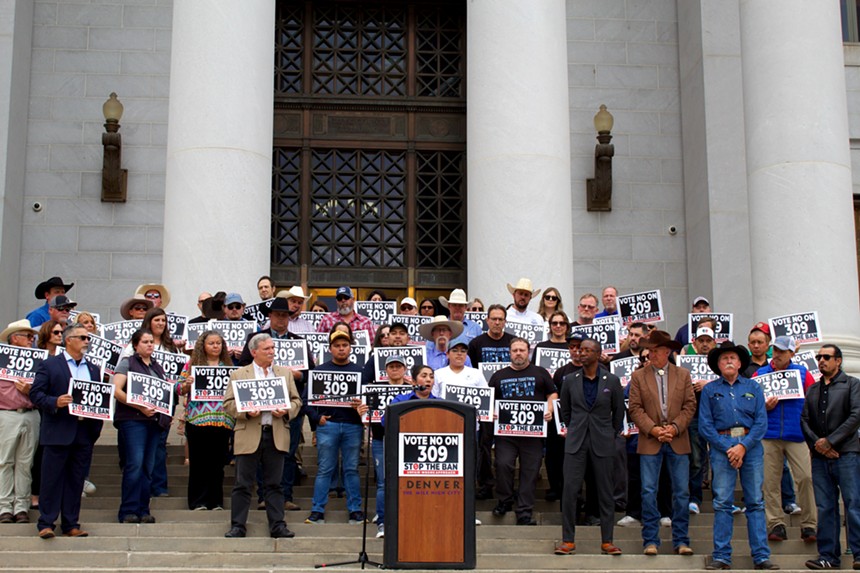
Isabel Bautista speaks during the rally against Initiated Ordinance 309 on Wednesday, September 11.
Hannah Metzger
The ban's impact could extend beyond the slaughterhouse employees, with the change in the lamb-supply chain impacting farmers, truckers, distributors, retailers, butchers and restaurants. Worst-case estimates suggest that shutting down the Denver facility could result in 2,787 jobs lost and a reduction of $861 million in economic activity, according to a report by the Regional Economic Development Institute at Colorado State University.
The ballot measure includes a provision that would require the city to prioritize former slaughterhouse employees in workforce training and employment assistance programs. But Bautista says that brings her no comfort: "That doesn't guarantee nothing for us," she says.
Kankyoku views the ballot measure as an opportunity to support the slaughterhouse workers in finding better employment.
"We've spoken to former employees at the slaughterhouse who describe not only a toxic work culture, but something uniquely detrimental about your job being to spend all day killing animals," Kankyoku says. "We've spoken to a number of former employees who really feel that their lives were permanently affected by working there. ... It's a transition into a much safer, much less psychologically damaging kind of work."
The campaigns on both sides of the issue accuse one another of being backed by outside interests and meddling in the business of Denver residents.
The "Pro-Animal Denver" committee in support of the ballot measure has raised nearly $228,000: over $216,000 from the Colorado-based Pro-Animal Future organization and $11,490 from Owen Gunden, an animal-rights philanthropist, according to Denver's campaign finance website.
The "Stop the Ban Protect Jobs" committee opposing the measure has raised over $738,000 from dozens of donors. The largest contributors are Superior Farms, with more than $160,000 in donations; the American Sheep Industry Association, with $80,000; the National Pork Producers Council, with $50,000; the Colorado Livestock Association, with $50,000; United Food & Commercial Workers, with $50,000; and the National Cattlemen's Beef Association, with $50,000.
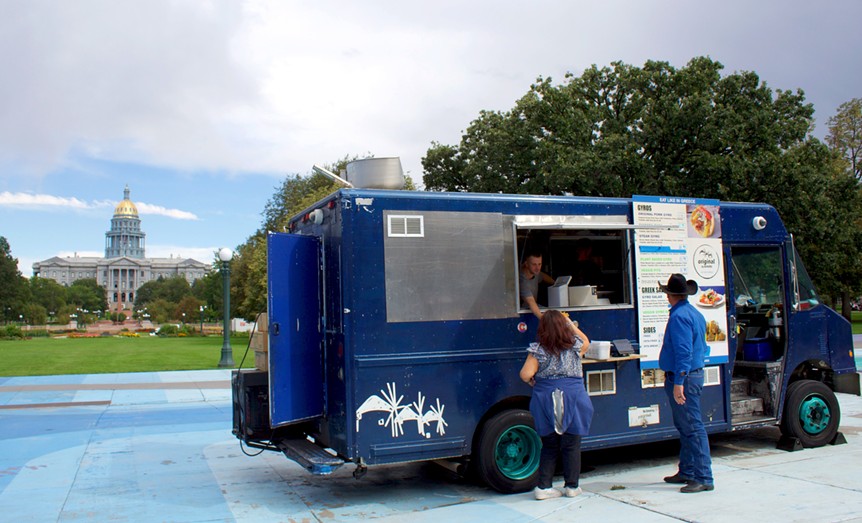
A food truck sells lamb gyros during the press conference advocating against Denver's proposed slaughterhouse ban.
Hannah Metzger
Restaurants Come Out Against Ban
Before the ballot measure, both campaigns note, most Denver residents they spoke to didn't even know there was a slaughterhouse in the city. Superior Farms has recently attempted to expand its profile, becoming the presenting sponsor of Denver Restaurant Week in March.Many restaurateurs have lined up against the ballot measure, expressing concern that losing their local lamb supplier would force them to spend more money to get lower-quality meat from other states. The Stop the Ban campaign says that fifty local restaurants have signed on, including Casa Bonita, Bar Dough, Ash'Kara and Zoe Ma Ma.
"Lamb is a big deal in my restaurant. Especially for my Sunday-only pop-up, where we do barbacoa," says Jose Avila, chef at La Diabla Pozole y Mezcal. "It would impact me drastically. If I'm not getting it locally, there's middlemen involved, there's other drivers involved. Everything has a cost. ... It just gets to a point where it's not feasible not to raise prices."
Proponents of the slaughterhouse ban argue that higher lamb prices are a small price to pay.
"Denver has the opportunity to become a leader in ethical and sustainable food practices," says Olivia Hammond, communications lead of Pro-Animal Future. "We firmly believe the long-term investment in safer worker conditions, less industrial pollution, increased sustainability and better animal welfare in our city will far outweigh any short-term adjustments."
The election will take place on November 5. Ballots will start being mailed to voters on October 11. Keep an eye on our Election topic page for all of our latest coverage.

